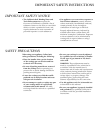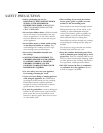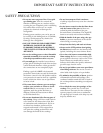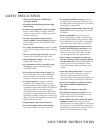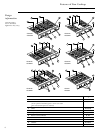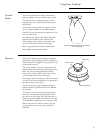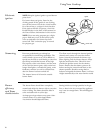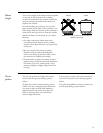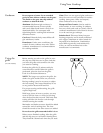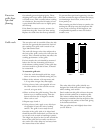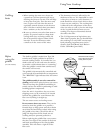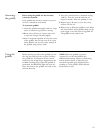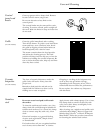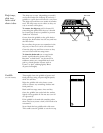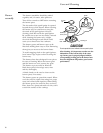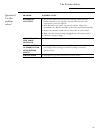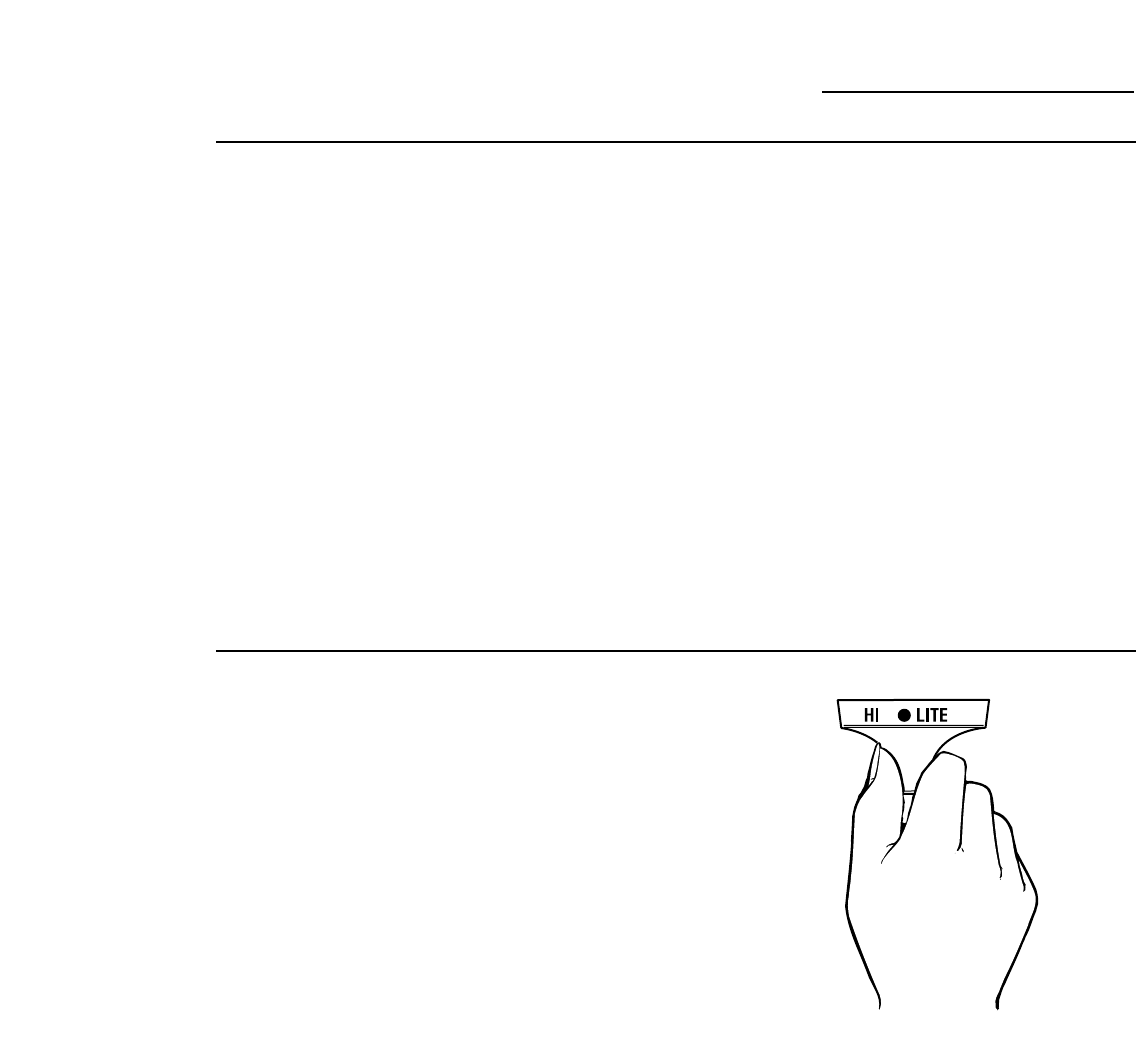
Using Your Cooktop
Stainless Steel Cooktop
12
Cookware
Do not operate a burner for an extended
period of time without cookware on the grate.
The finish on the grate may chip without
cookware to absorb the heat.
Aluminum: Medium-weight cookware is
recommended because it heats quickly
and evenly. Most foods brown evenly in an
aluminum skillet. Use saucepans with
tight-fitting lids for cooking with minimum
amounts of water.
Cast Iron: If heated slowly, most skillets will
give satisfactory results.
Enamelware: Under some conditions, the
enamel of some cookware may melt. Follow
cookware manufacturer’s recommendations
for cooking methods.
Glass: There are two types of glass cookware—
those for oven use only and those for surface
cooking (saucepans, coffee and teapots).
Glass conducts heat very slowly.
Heatproof Glass-Ceramic: Can be used for
either surface or oven cooking. It conducts
heat very slowly and cools very slowly. Check
cookware manufacturer’s directions to be sure
it can be used on gas cooktops.
Stainless Steel: This metal alone has poor
heating properties, and is usually combined
with copper, aluminum or other metals for
improved heat distribution. Combination
metal skillets generally work satisfactorily
if they are used at medium heat as the
manufacturer recommends.
Using the
grille
(on some models)
Before starting to cook on the grille, be sure
the drip tray and liners are in place and that
you have the grille racks turned to the side
you want for cooking.
Preheat the grille for 15 minutes with the
control knob set on HI. When the grille is
preheated, place the food on the grille.
Cook it to the desired doneness.
NOTE: The longer you preheat the grille, the
darker the grille marks will be on your food.
During cooking it may be necessary to adjust
the heat setting. The control knob may be set
to any position between HI and LO.
For proper searing and browning, the grille
requires high heat.
With large pieces of meat or poultry, you may
need to turn the heat to a lower heat setting
after the food has been seared. This lower heat
setting will allow the food to cook through
without burning the outside.
Marinades and barbecue sauce should be added
toward the end of cooking time. The heat
should be turned to low when sauces are added.
Do not leave the grille unattended while it is on.
When you are finished cooking, allow the grille
and the drip trays to cool before cleaning them.
They should be cleaned each time they are used.



